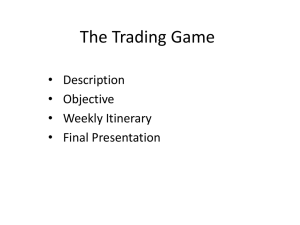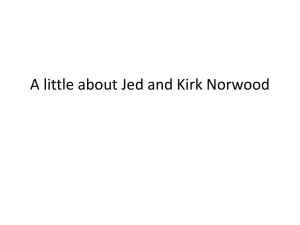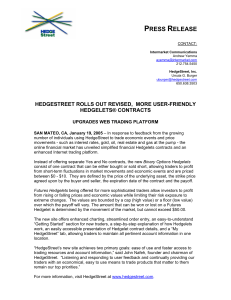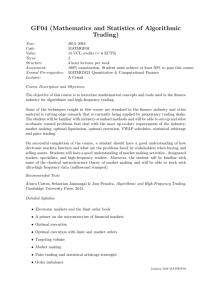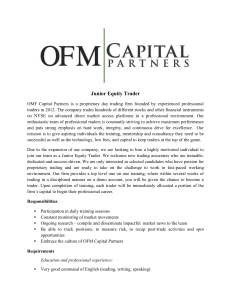Print › World History Chap 11.3 | Quizlet | Quizlet
advertisement
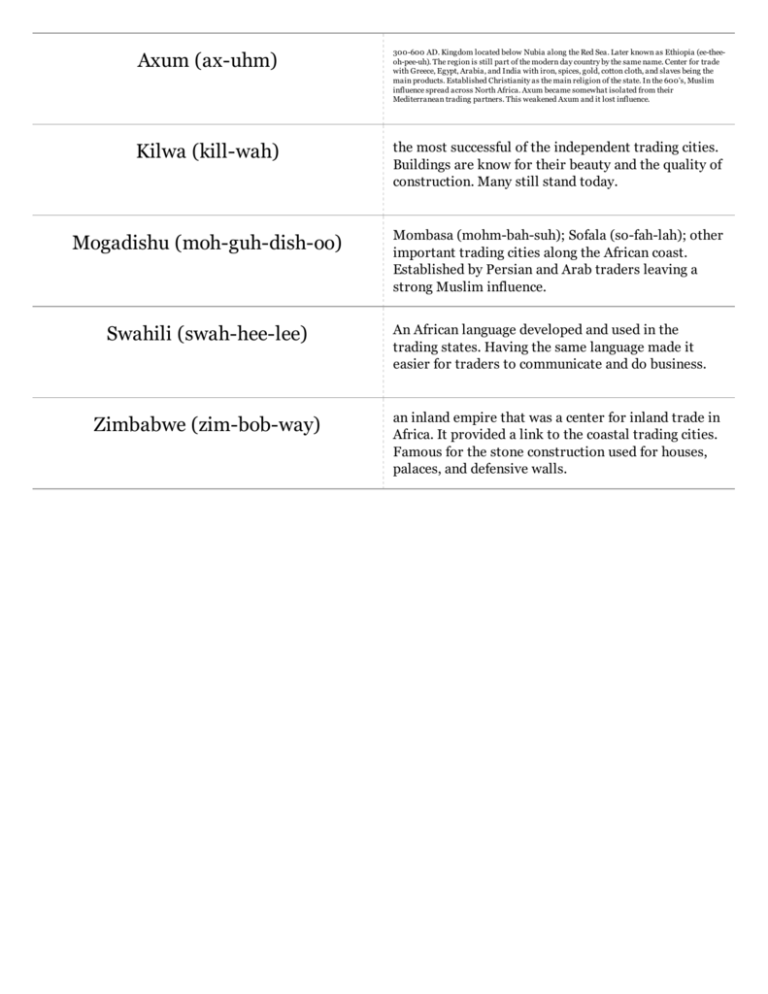
Axum (ax-uhm) 300-600 AD. Kingdom located below Nubia along the Red Sea. Later known as Ethiopia (ee-theeoh-pee-uh). The region is still part of the modern day country by the same name. Center for trade with Greece, Egypt, Arabia, and India with iron, spices, gold, cotton cloth, and slaves being the main products. Established Christianity as the main religion of the state. In the 600's, Muslim influence spread across North Africa. Axum became somewhat isolated from their Mediterranean trading partners. This weakened Axum and it lost influence. Kilwa (kill-wah) the most successful of the independent trading cities. Buildings are know for their beauty and the quality of construction. Many still stand today. Mogadishu (moh-guh-dish-oo) Mombasa (mohm-bah-suh); Sofala (so-fah-lah); other important trading cities along the African coast. Established by Persian and Arab traders leaving a strong Muslim influence. Swahili (swah-hee-lee) Zimbabwe (zim-bob-way) An African language developed and used in the trading states. Having the same language made it easier for traders to communicate and do business. an inland empire that was a center for inland trade in Africa. It provided a link to the coastal trading cities. Famous for the stone construction used for houses, palaces, and defensive walls.

